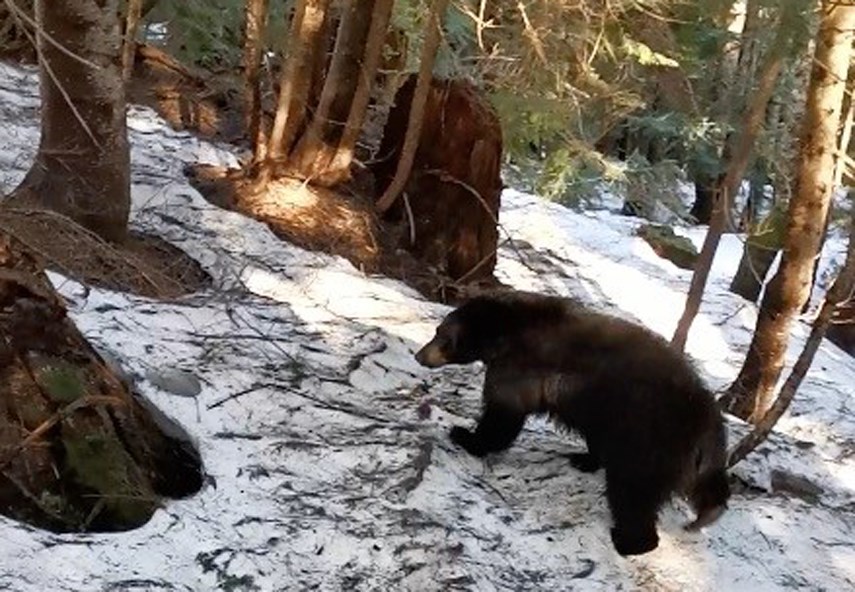North Shore Rescue is warning the public about a young black bear getting too close for comfort on the trails around Grouse Mountain and Mount Fromme.
Most bears prefer a wide berth, but some adolescents can be a bit more social, bordering on pushy. Hikers on North Vancouver’s trails should be carrying bear spray and be ready to stand their ground in case they encounter a bruin, said Ellie Lamb, a North Shore Rescue member and expert in bear behaviour.
“He's been as close as a couple metres away. So that's right up there, and that's pretty uncomfortable for people,” said Lamb, who also volunteers with the North Shore Black Bear Society and works as an outdoor guide. “He's not a bad bear. He's just crossing lines that we don't want him to cross, so we want him to stay back and give us our space.”
If you’re on the trail and you happen by a bear that doesn’t shy away, the first thing is speak to the bear in a calm but firm voice, letting it know it has to back off, Lamb said.
It’s counterintuitive, especially because bear encounters can be so frightening, Lamb said, but the next thing to do is strike a harsher tone (though not yell) and take a step toward the bear.
“That step forward can really make or break a situation,” she said. “That one step can just say ‘I'm committed.’”
If that doesn’t work, Lamb said people should be ready to give the bear two or three doses of bear spray, right in the face.
A group of hikers recently filmed their close encounter with the bear. They had spray with them but said they were “terrified” that using it would escalate the conflict into an attack. Thankfully, there are almost no documented cases of bears attacking after being sprayed, Lamb said.
More than causing temporary pain, the spray will interfere with a bear's ability to smell, robbing of them of their most important sense, Lamb said.
“They don't trust what they see. They don't trust what they hear. But when they smell it, they know it. … You shut that down, that is terrifying to a bear,” she said. “They are going to turn around and disappear.”
It will be a lesson they will likely carry with them the next time they are curious about humans.
If you don’t have bear spray, you can try reaching for a stick, a rock or a snowball, when all else fails, Lamb said.
Because so many bear conflicts involve dogs, people should keep their canines leashed when on trails in that area, Lamb added.
Eventually, Lamb said she hopes the bear will learn to keep a healthy distance from people, as most bears do. In the meantime, Lamb said she doesn’t want people to be afraid of using the trails or seeing bears, because the bear has not shown any sign of aggression.
“The fear is going to skew our judgments so we need to encourage people to just relax. … I think fear is what kills these animals,” she said. “They’re lovely animals, and they're highly misunderstood, and my No. 1 (priority) is to teach people about their behaviour and their true nature.”
Anyone who sees the bear coming too close should report it to the North Shore Black Bear Society at 604-317-4911, Lamb added.



